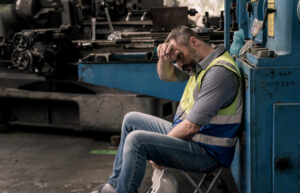Maisa Ribeiro Vidal
Lawyer at Marcos Martins Advogados
With the end of the state of Public Health Emergency of National Importance (ESPIN), decreed due to the pandemic in Brazil, the Federal Government revoked the 23 decrees to combat the Covid-19 Pandemic in April of this year, which, however, does not mean that companies are exempt from following the safety measures required by the Ministry of Health and the Ministry of Labor.
Even with the decrease in cases of contagion, the complete immunization of most of the population, the removal of the requirement to wear masks indoors and the federal government’s updating of the required safety measures, employers need to be diligent in adopting measures to prevent and combat Covid-19 contamination.
The company must continue to invest in measures that promote a safe and healthy working environment in this post-pandemic transition scenario, not relaxing measures for cleaning and disinfecting environments and constant guidance on hand hygiene. It is the employer’s duty to guarantee a safe working environment, as well as one that is conducive to workers’ physical health.
In addition to monitoring and controlling the protection of workers’ health and the advice of an occupational physician, the pandemic has shown the need to create an organizational culture in terms of health, hygiene and safety at work, regardless of whether the company recognizes the biological risk arising from exposure to the SARS-CoV-2 virus in its permanent occupational programs (PPRA and PCMSO).
Although it is no longer compulsory for employees with symptoms to be taken off work immediately, it is permitted and recommended that companies continue to advise their employees about taking time off work in cases where Covid is confirmed, in accordance with medical guidelines and measures indicated by the Ministry of Health. If the employer believes that absence from work is not necessary, it is up to the employee to consult a doctor and present a certificate justifying their absence, and there is no need for the employer to issue a CAT (Communication of Accident at Work) in positive cases, except in cases where the contamination is proven to be work-related.
As for the risk group (the elderly, pregnant women/lactating mothers and workers with comorbidities), many companies still maintained the position of keeping these employees away from the workplace, which is no longer mandatory since the end of the public health emergency. In the event of an employee’s unjustified refusal to return to work, as they did before the pandemic, the company can apply the appropriate disciplinary penalties, as the method of working is the employer’s discretionary right.
It should be remembered that in labor law, there are three types of disciplinary sanctions: warning, suspension and dismissal for just cause, and in addition to observing the gradation of penalties, they must always be formally proven before giving rise to motivated dismissal, since it is the employer’s burden to prove in court the summons and respective refusal of the worker to return to face-to-face work.
Despite the possibility of the employer requiring vaccination against Covid-19, provided for in Article 3 of Law 13.979/2020, although it is still in force, it only authorizes the requirement to present proof for the duration of the state of emergency, and it is unreasonable for the employer in this transition phase to use this premise for the possibility of dismissal for just cause.
The employer must follow the guidelines of the health protocol in the workers’ routine, and every investment in occupational safety and medicine brings several benefits to companies, reducing compensation costs and keeping their employees safe and engaged, while failure to comply with the measures established by MTP/MS Ordinance No. 17/2022 may lead to inspection, a notice of infraction and a fine that varies according to the number of employees.
Legal intelligence in this monitoring is fundamental, ensuring that all legal measures are being observed in order to minimize lawsuits and the unwanted damage resulting from labor liabilities.







